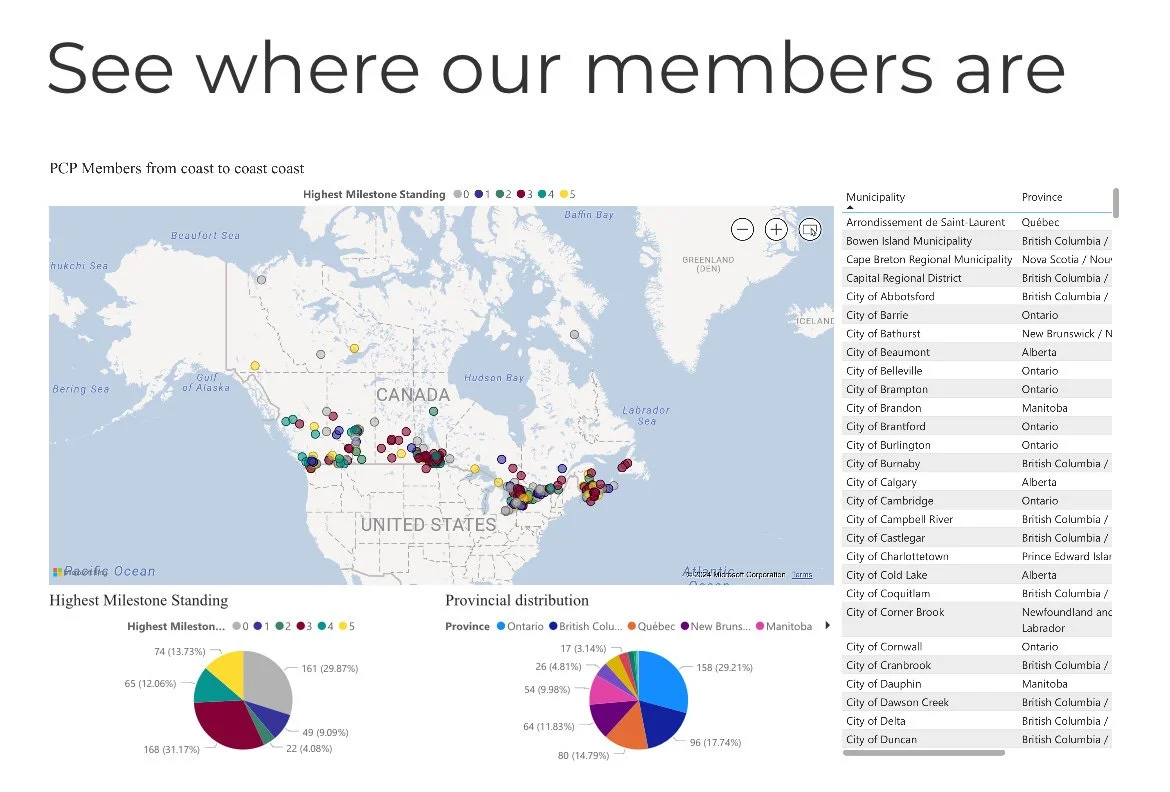
Laying Out the Board!
Phase One: Preliminary Research & Organization
Research & Communication Tool
Maggie Braun has programmed a specialized ChatGPT tool, the Canadian Civic Advisor, to assist with Phase One research and organization. The Canadian Civic Advisor is available via ChatGPT for $20 USD per month and is regularly updated for optimal output quality.
Phase One: Preliminary Research & Organization
Laying the Foundation for Your Local Advocacy Campaign
In Phase One, the goal is to gather essential information about your municipality’s involvement in the Partners for Climate Protection (PCP) program, establish communication channels, and set up resources for public engagement. This research phase ensures you’re prepared with key documents, contacts, and scheduling details to support your advocacy effectively.
Step-by-Step Instructions for Phase One
1. Determine PCP Membership
Find out if your municipality is part of the PCP program by checking the membership list on the official PCP website. This confirmation step helps you understand whether your municipality has existing commitments within the program.
2. Obtain Key Motions and Documents
Request key council documents that show your municipality’s involvement in the PCP program, including the original motion to join and the Climate Action Plan. You can do this by contacting the municipal clerk’s office. These documents provide insight into council commitments and program goals that impact your community.
3. Compile Council Meeting Dates and Info
Gather dates, times, and locations for upcoming council meetings. These meetings provide a direct opportunity for engagement and advocacy, so knowing the schedule allows you to plan for attendance or public comments effectively. Assistance for larger regions is available email mark.solman@gmail.com.
4. Delegation Instructions
If you’d like to present concerns or suggestions directly to the council, look up delegation registration requirements on your municipality’s website. Familiarize yourself with procedures and best practices for respectful engagement during council meetings to make a strong, professional impact.
5. Obtain a Map with Ward Boundaries
Find a map of municipal wards to help you identify which councillors represent different areas of the community. This information is useful for organizing local support and connecting with representatives who serve your specific area.
6. Prepare Communication Channels
Collect contact information for local representatives, including councillors, the mayor, and key municipal departments (e.g., finance, records, environmental). Also gather details for local press contacts, community centers, and neighborhood associations. These resources will be valuable for spreading awareness and mobilizing community support.
Identify NGOs and Consultants: Find out if there are any NGOs or consultants in your area who receive funding to track UN Sustainable Development Goals (SDGs) or PCP-related initiatives. Reaching out to these organizations can provide additional insights into local program implementation.
7. Create an Email for the Local Chapter
Set up a dedicated email for communication, such as “YourTownLocalists@domain.com.” This email will serve as the official point of contact for reaching out to the council, press, and community members, helping you manage communications and organize efficiently.

